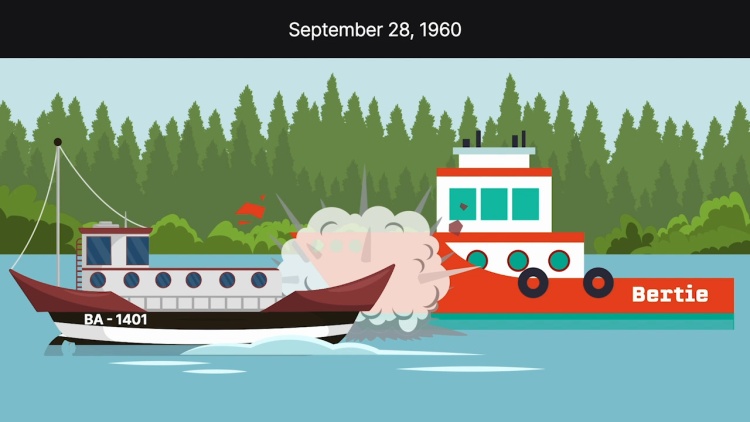Hewlett v. Barge Bertie
United States Court of Appeals for the Fourth Circuit
418 F.2d 654 (1969)

- Written by Josh Lee, JD
Facts
Barge BA 1401 (Barge) was declared a constructive total loss by its prior owner because its repair costs after an accident were greater than its purchase price or market value. The Barge was salvaged by Latham Hewlett (plaintiff) for use as a pontoon in salvage operations. The Barge’s only market value was as scrap metal for $5,616. Subsequently, the Barge collided with Barge Bertie (defendant), which was owned by C. G. Willis Company, Inc. (defendant). The only damage to the Barge was a dent in its starboard side, which did not prevent its use as a pontoon. Hewlett brought suit against Willis for reimbursement for the damaged Barge. At trial, Hewlett testified that the Barge could also be used to transport telephone poles, although the Barge had not been used for this purpose. However, both parties agreed that the dent did not prevent the Barge’s use for such transportation. Furthermore, the dent did not affect the Barge’s market value as scrap metal. Repairing the dent would cost approximately $2,895. Because the Barge had previously been declared a constructive total loss, and because no real damages had been shown, the district court awarded nominal damages of $1. The district court made no finding as to the value of the Barge. Hewlett appealed.
Rule of Law
Issue
Holding and Reasoning (Bryan, J.)
Dissent (Haynsworth, C.J.)
What to do next…
Here's why 907,000 law students have relied on our case briefs:
- Written by law professors and practitioners, not other law students. 47,100 briefs, keyed to 996 casebooks. Top-notch customer support.
- The right amount of information, includes the facts, issues, rule of law, holding and reasoning, and any concurrences and dissents.
- Access in your classes, works on your mobile and tablet. Massive library of related video lessons and high quality multiple-choice questions.
- Easy to use, uniform format for every case brief. Written in plain English, not in legalese. Our briefs summarize and simplify; they don’t just repeat the court’s language.





